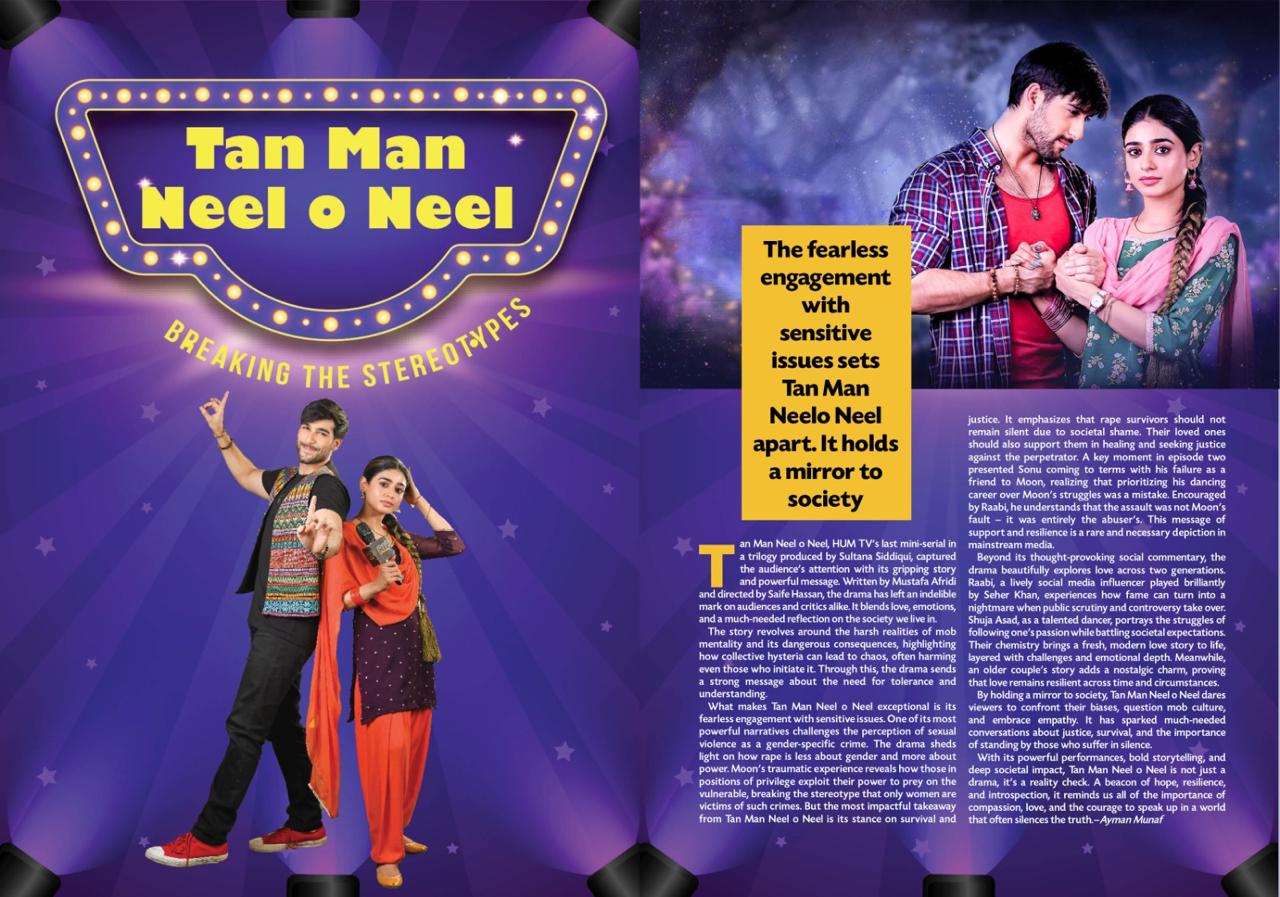Uncategorized
Breaking the Stereotypes

Tan Man Neel o Neel, HUM TV’s last mini-serial in a trilogy produced by Sultana Siddiqui, captured the audience’s attention with its gripping story and powerful message. Written by Mustafa Afridi and directed by Saife Hassan, the drama has left an indelible mark on audiences and critics alike. It blends love, emotions, and a much-needed reflection on the society we live in.
The story revolves around the harsh realities of mob mentality and its dangerous consequences, highlighting how collective hysteria can lead to chaos, often harming even those who initiate it. Through this, the drama sends a strong message about the need for tolerance and understanding.
What makes Tan Man Neel o Neel exceptional is its fearless engagement with sensitive issues. One of its most powerful narratives challenges the perception of sexual violence as a gender-specific crime. The drama sheds light on how rape is less about gender and more about power. Moon’s traumatic experience reveals how those in positions of privilege exploit their power to prey on the vulnerable, breaking the stereotype that only women are victims of such crimes.
But the most impactful takeaway from Tan Man Neel o Neel is its stance on survival and justice. It emphasizes that rape survivors should not remain silent due to societal shame. Their loved ones should also support them in healing and seeking justice against the perpetrator. A key moment in episode two presented Sonu coming to terms with his failure as a friend to Moon, realizing that prioritizing his dancing career over Moon’s struggles was a mistake. Encouraged by Raabi, he understands that the assault was not Moon’s fault—it was entirely the abuser’s. This message of support and resilience is a rare and necessary depiction in mainstream media.
Beyond its thought-provoking social commentary, the drama beautifully explores love across two generations. Raabi, a lively social media influencer played brilliantly by Seher Khan, experiences how fame can turn into a nightmare when public scrutiny and controversy take over. Shuja Asad, as a talented dancer, portrays the struggles of following one’s passion while battling societal expectations. Their chemistry brings a fresh, modern love story to life, layered with challenges and emotional depth. Meanwhile, an older couple’s story adds a nostalgic charm, proving that love remains resilient across time and circumstances.
By holding a mirror to society, Tan Man Neel o Neel dares viewers to confront their biases, question mob culture, and embrace empathy. It has sparked much-needed conversations about justice, survival, and the importance of standing by those who suffer in silence.
With its powerful performances, bold storytelling, and deep societal impact, Tan Man Neel o Neel is not just a drama, it’s a reality check. A beacon of hope, resilience, and introspection, it reminds us all of the importance of compassion, love, and the courage to speak up in a world that often silences the truth.
